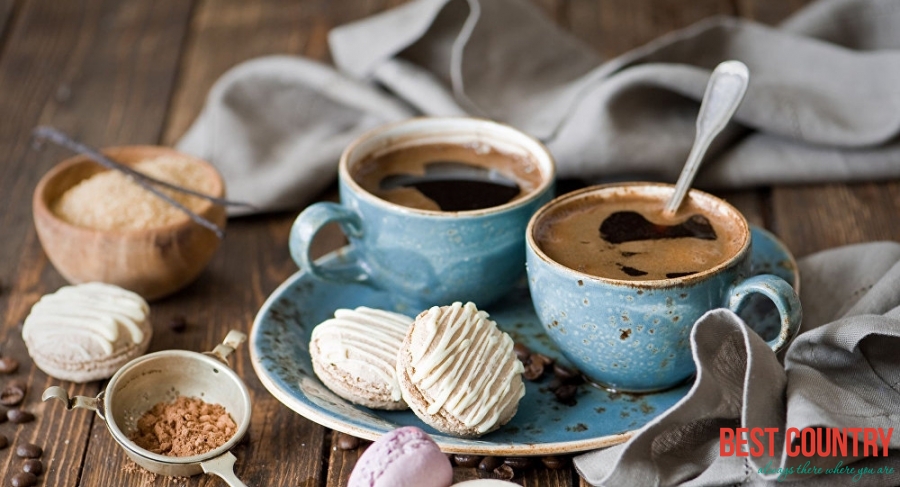Haikakan S'rj, Armenian Coffee, defines its lifestyle. Once thought to be a legacy of Ottoman Turkish rule, it is now understood to have originated in Yemen, with caravans bringing the beans north and then west, where it infiltrated both Asia and Europe.
Coffee and tea in Armenia
Like Greek or Turkish coffee, Armenian coffee is a demitasse of thick brew boiled and served with powdered grounds in individual copper or brass pots.
 When ordering, the server will ask if you want it soverakan or kats'r (normal or sweet). Normal is already sweetened a bit.
When ordering, the server will ask if you want it soverakan or kats'r (normal or sweet). Normal is already sweetened a bit.
Next to Armenian coffee is most easily called Nescafe. If you want it with milk, ask for Nescafe katov (Nescafe kah-TOHV, Nescafe with milk).
In summer time, Armenians will prepare cold coffee (sarna s'rj, sahr-NAH S'RJ) which is whipped with sugar into a paste before adding the rest of the water.
Espresso, cappuccino and filtered coffee is only available at some bars and upscale cafes, the espresso and cappuccino powdered instants made by (guess who?) Nescafe.
Tea in Armenia can be a delight, especially if it herbal. Armenians will spend spring and summer collecting mountain herbs, drying them for teas.
Name an herb, and it is available in tea form in Armenia, though restaurants usually serve Indian or Georgian tea. Name-brand bag teas are available around the country.
Soft Drinks
Coca-Cola, Pepsi, Fanta and their Middle Eastern imitation are all widely available in both cans and bottles. Fresh fruit juice is also widely available in disposable boxes.
Water
Spring water is located everywhere in the country, and road side springs are safe to drink. Tap water is safe at Yerevan hotels and lodgings, at modern hotels in other locations, and many homes, but drink bottled water to be safest. Bottled mineral water is widely available in 750 ml (100 AMD) and 1.5 liter bottles (250 AMD.
The most popular brands are Bjini and Jermuk. Bottled spring water (non-mineral) is also available in 750 ml (100 AMD) and 1.5 liter (250 AMD) bottles.